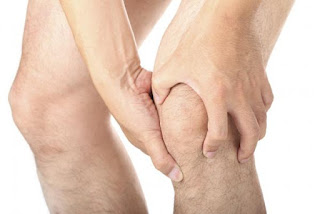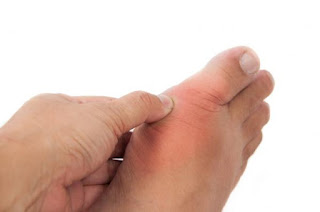What Are The Symptoms Of Uric Acid
What Are The Symptoms Of Uric Acid. Causes Of Hyperuricemia, Symptoms Of High Uric Acid, Treatment For Hyperuricemia, How To Prevent High Uric Acid.
 |
| What Are The Symptoms Of Uric Acid |
Hyperuricemia is the name given to having the level of uric acid in blood too high. This chemical is secreted 70% by our body and contributed by the food we eat by 30%.
The excess of uric acid becomes crystals that accumulate in the joints and generate pain. we explain what are the symptoms of uric acid and many more details that will be very useful.
Read Also : How to clean liver with ginger.
What is high uric acid
This acid is a substance that the human body generates by breaking down purines , substances that are found in many foods that we usually eat.Thus, hyperuricemia is the condition in which uric acid levels are too high since it accumulates because the kidneys do not eliminate it well with urine.
In most cases, this excess results in the formation of needle-shaped crystals that deposit in a joint or in several of them, generating inflammation.
This condition can occur without obvious symptoms , that is, it can be an asymptomatic condition.
In fact, in many cases, people who suffer from it do not realize until the doctor observes in blood tests that the level of uric acid exceeds normal values.
 |
| What Are The Symptoms Of Uric Acid |
Causes of hyperuricemia
Normally our body produces this substance due to the functioning of the metabolism itself, and a small part compared to the total produced, is generated by the process of decomposition of the purines.In this way, the main causes of high uric acid are the following:
Excess production of the organism itself
Problems in the elimination of this acid through the kidneys
Inadequate nutrition with excess purine-rich foods
Consumption of alcohol and other substances harmful to health
Also, there are several risk factors that make certain groups are people more easily to suffer from this condition:
- People with a family history of gout
- Usual alcohol consumption
- High habitual consumption of caffeine
- High stress situations
- Use of iodinated radiological contrast
- Having high blood pressure, diabetes, obesity and high cholesterol
Symptoms of high uric acid
 |
| What Are The Symptoms Of Uric Acid |
There are two signs that always easily evidence this condition: gout and stones in the kidneys .
Thus, due to the accumulation of crystals in the joints, one of the most common symptoms of uric acid will be pain in the big toe or knee , as well as in other joints. This can result in what is known as a gout attack, you can see here how to treat gout.
Also, in some cases, it can also be difficult to urinate or kidney problems , because of the formation of kidney stones .
And is that the kidneys are the organs responsible for removing this substance from the body through urine, so that the accumulation of uric acid can lead to this type of ailments.
Therefore, the main symptoms that can show an excess of uric acid in the blood are:
- Severe pain in the knees
- Pain in the big toe
- Severe pain in other joints
- Inflammation of the joints
- Kidney stones
- Problems urinating
- Fever
- Shaking chills
- Tachycardia
- Fatigue
- Tophi or hard lumps in the joints
The so-called tophi come to occur when the problem of hyperuricemia is not treated or not treated properly and it gets worse until you get to create these hard lumps among other secondary problems.
Treatment for hyperuricemia
Likewise, it is good to know some guidelines that are usually followed to cure or improve this health problem so that, as soon as the doctor diagnoses it, we can begin the treatment indicated and reinforce it with some guidelines that favor recovery.Thus, the treatment for uric acid is usually based on both medication and changes in eating habits:
Antiinflammatories such as Ibuprofen or NSAIDs or non-steroidal anti-inflammatory drugs are usually prescribed. Although the latter are not usually prescribed if you have some type of cancer or receive treatment with radiation or chemotherapy.
In addition uricosuric drugs are prescribed, which block the absorption of urate.
To prevent the occurrence of gout, there are usually inhibitors of xanthine oxidase, an enzyme, but its use should be avoided in the middle of an episode or outbreak of intense joint pain, since in this case it may worsen.
Regulate the diet, mainly reducing or eliminating the foods that contribute purines and drinking a lot of water of low mineralization.
 |
| What Are The Symptoms Of Uric Acid |
What to eat if I have uric acid
It is very important to modify the diet to lower high uric acid and this should be a change in the habits that it is advisable to maintain over time even if the problem of hyperuricemia is controlled.So, in addition to the medical treatment indicated by your doctor and the home remedies that I mentioned that in your case you can use, you should know some of the foods that you can eat if you have this problem, as they do not have purines or have very little quantity:
- Artichoke
- Onion
- Celery
- pumpkin
- Carrot
- Cereals
- Starches
- Vegetables
- Apples
- Strawberries
- Citrus
- Blueberries
- Chicken
- Eggs
- Low mineralization water
In addition, you must also know the prohibited foods if you have hyperuricemia :
- Red meats
- Inlay
- Viscera
- Seafood
- Blue fish
- Spinach
- Mushrooms
- Cauliflower
- Asparagus
- Vegetables
- Cream
- Butter
- Industrial bakery
- Alcoholic drinks
- Carbonated drinks
How to prevent high uric acid
 |
| What Are The Symptoms Of Uric Acid |
If you have any of the aforementioned risk factors, that is to say that you fit into the profile of a prone person, you should go to the doctor to review yourself or ask him to include an examination of this condition in the annual reviews.
Drink at least 2 liters of water a day and, if you start to notice symptoms increase the daily amount.
Take diuretic and anti-inflammatory infusions, such as chamomile and horsetail, twice a week.
Avoid prohibited foods such as excessive red meat or seafood, in addition to those discussed in the previous section. Also, you must increase the amount of food recommended for this condition.
Do a little exercise every day.
Go to the doctor before any sign of any symptom discussed above and follow the treatment indicated, beginning to treat the problem promptly prevents it from getting worse.











No comments: